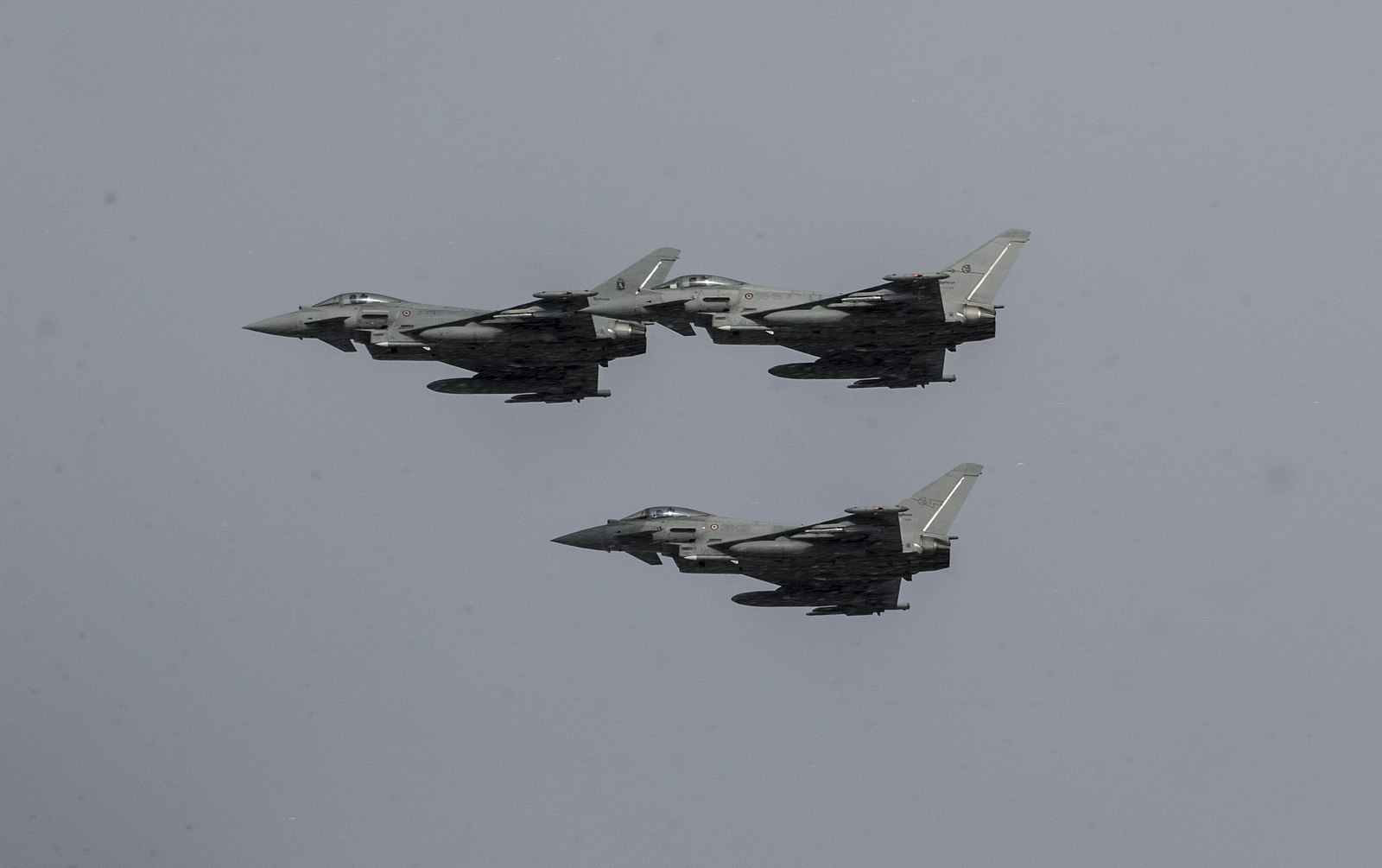
During their meeting in Berlin, German Chancellor Olaf Scholz is expected to reject Turkish President Recep Tayyip Erdogan’s request to purchase Eurofighter Typhoon jets. Tensions have escalated due to Turkey’s criticism of Israel among other things.
According to Bloomberg, Erdogan is expected to seek approval for at least twenty Eurofighter Typhoon jets, aiming to counter Greece’s recent acquisition of Rafale fighter planes. However, German officials cite diplomatic strains with Turkey over its acquisition of Russian air defenses, military actions in Syria against Kurdish forces, and delays in ratifying Sweden’s NATO membership.
The German chancellor is unlikely to consent, emphasizing Germany’s firm stance on Israel’s right to self-defense. Erdogan’s labeling of Israel as a “terrorist state” and his support for Hamas have heightened concerns. Unlike the US and EU, Turkey does not classify Hamas as a terrorist organization.
Erdogan’s push for fighter jets follows Turkey’s need to modernize its air force after being ousted from the F-35 program in 2019, Bloomberg explains. The US has signaled that the Turkish parliament must first ratify Sweden’s application to join the North Atlantic Treaty Organization (NATO) before considering the sale of warplanes.
Turkey’s Aim to Replace F-16 Fleet With Fighter Jet TAI KAAN
As previously reported, Turkey is poised to replace its F-16 fleet with the domestically crafted TAI KAAN, as part of Erdogan’s strategy to bolster the country’s defense sector. The TAI KAAN, a stealthy, twin-engine, all-weather air superiority fighter, is developed by Turkish Aerospace Industries with the British multinational BAE Systems as a subcontractor.
Seeking foreign partners to share development costs, Turkey envisions the TAI KAAN providing next-generation capabilities to its military. The aircraft will be open for acquisition by other nations.
With a wingspan of fourteen meters, a length of twenty-one meters, and a height of six meters, the aircraft is designed for high maneuverability with +9g and -3.5g limits. Planned capabilities include high situational awareness, optimized pilot workload, combat damage detection, new-generation mission systems, infrared trace, and interoperability with other military assets.
Given economic constraints, Turkey is seeking foreign partners. Azerbaijan has signed a cooperation protocol for the development of the TAI KAAN, aiming to determine working procedures and principles. While partnerships offer financial relief, they also pose challenges, as defense analyst Ozgur Eksi noted in speaking with Defense News. He compared it to subletting a house with shared expenses and potential disputes.